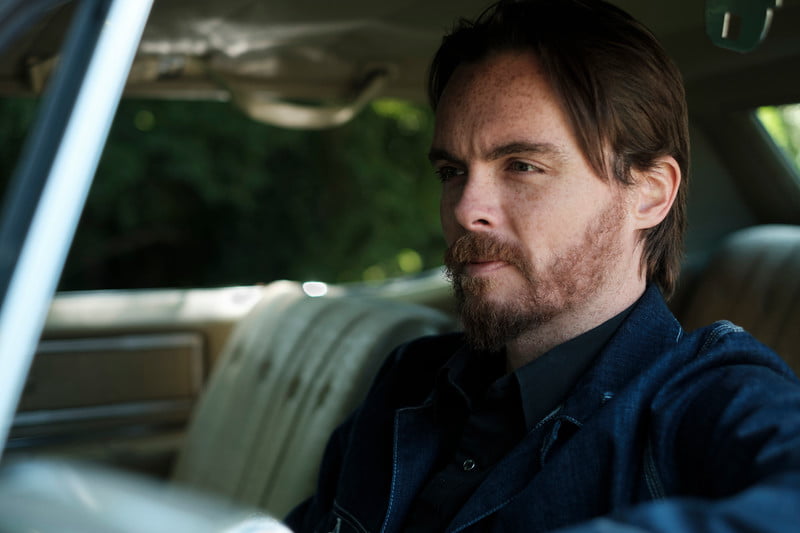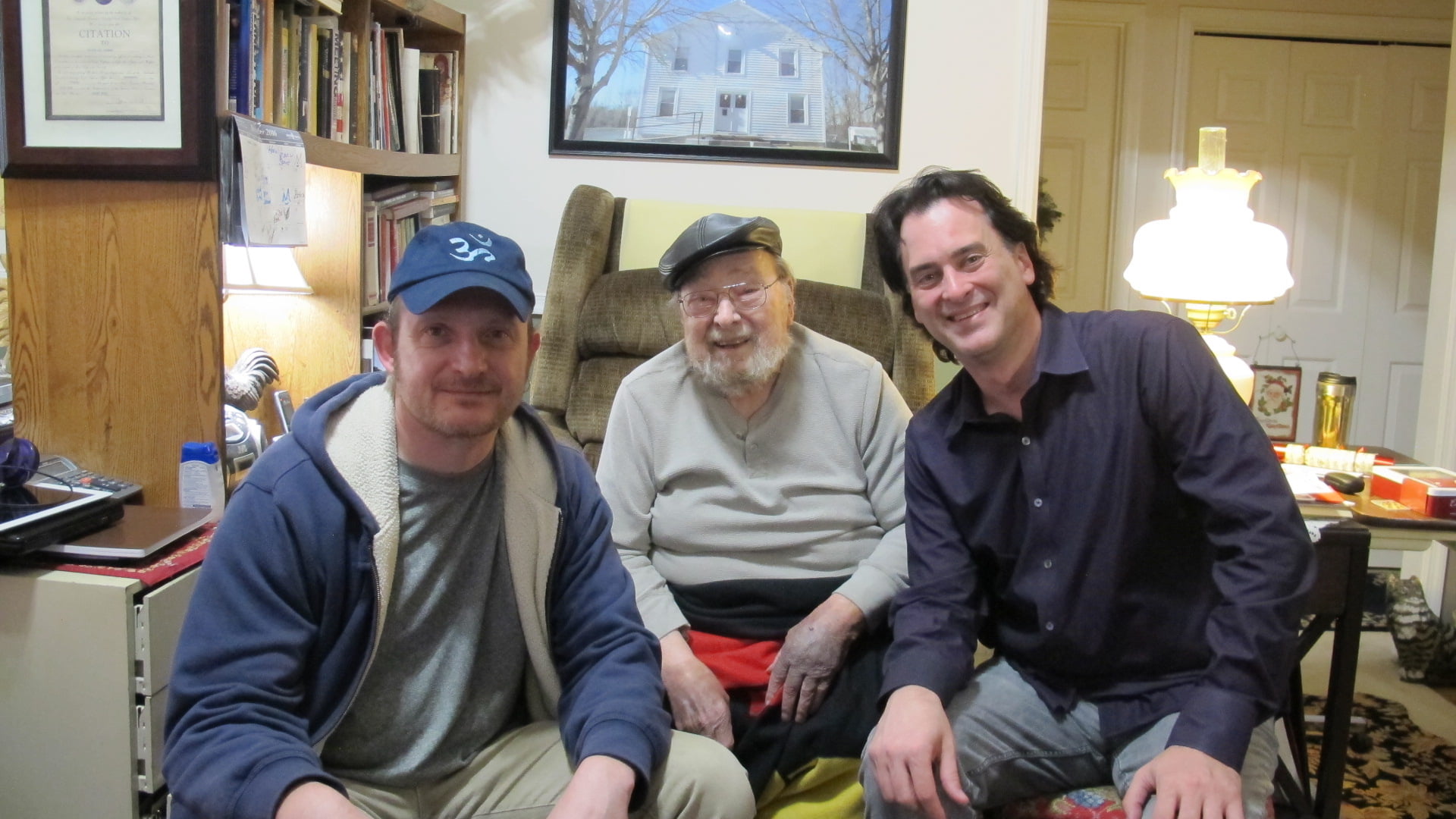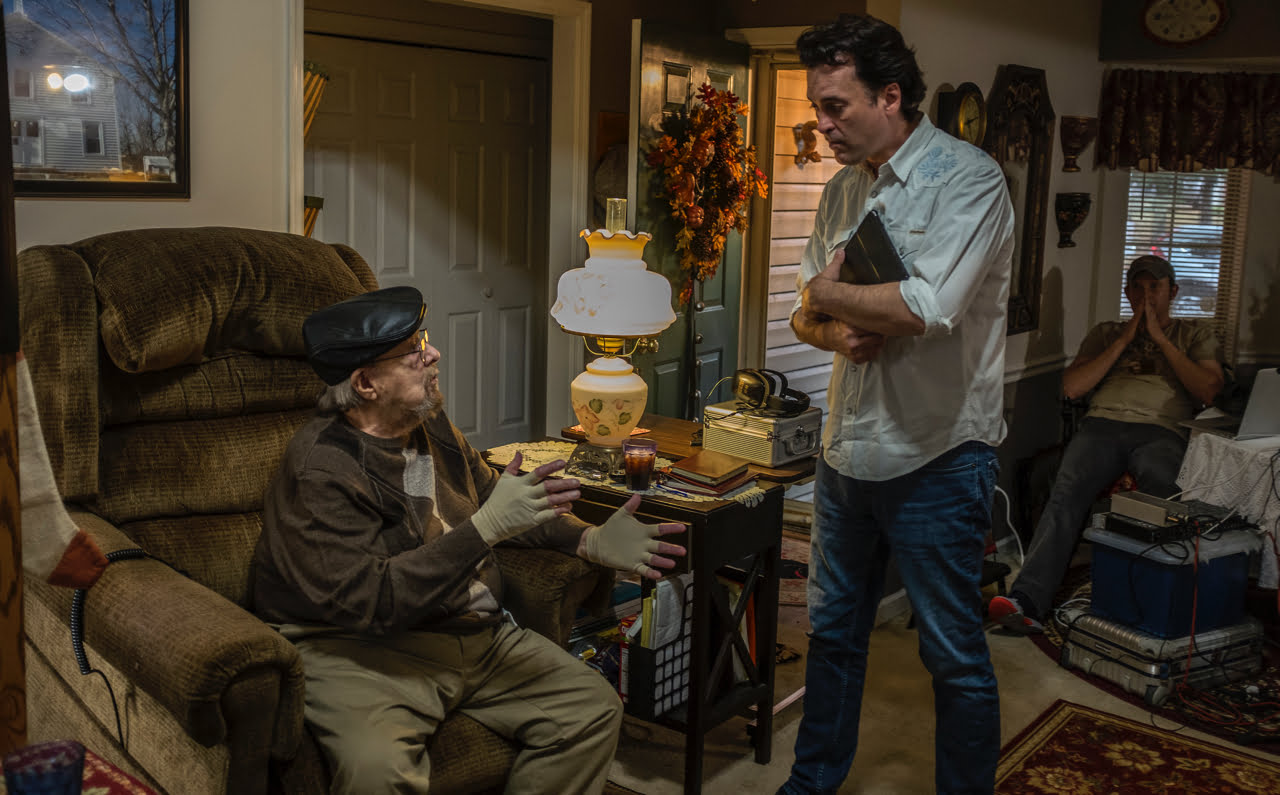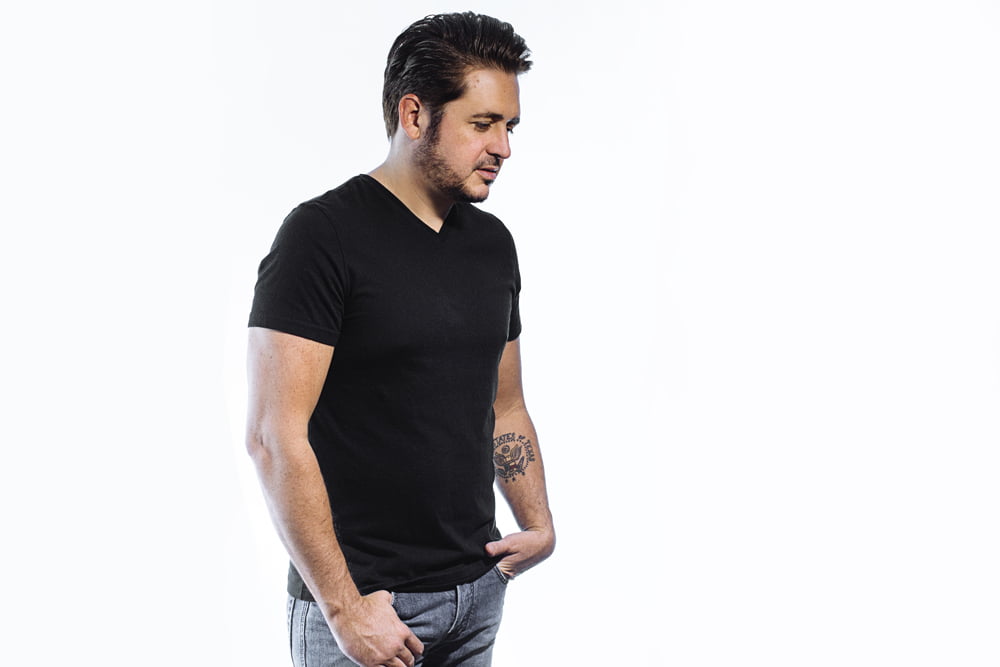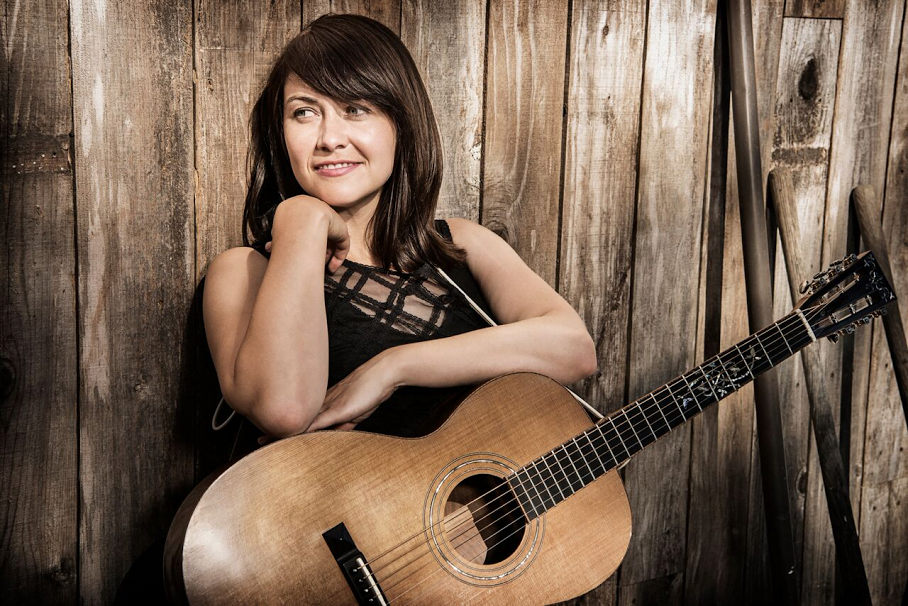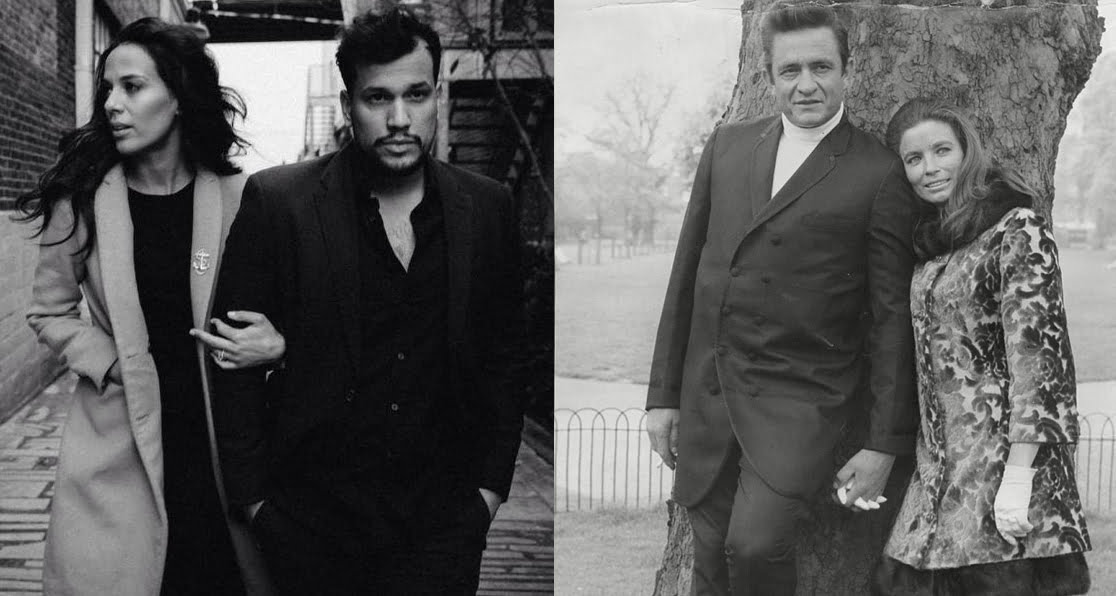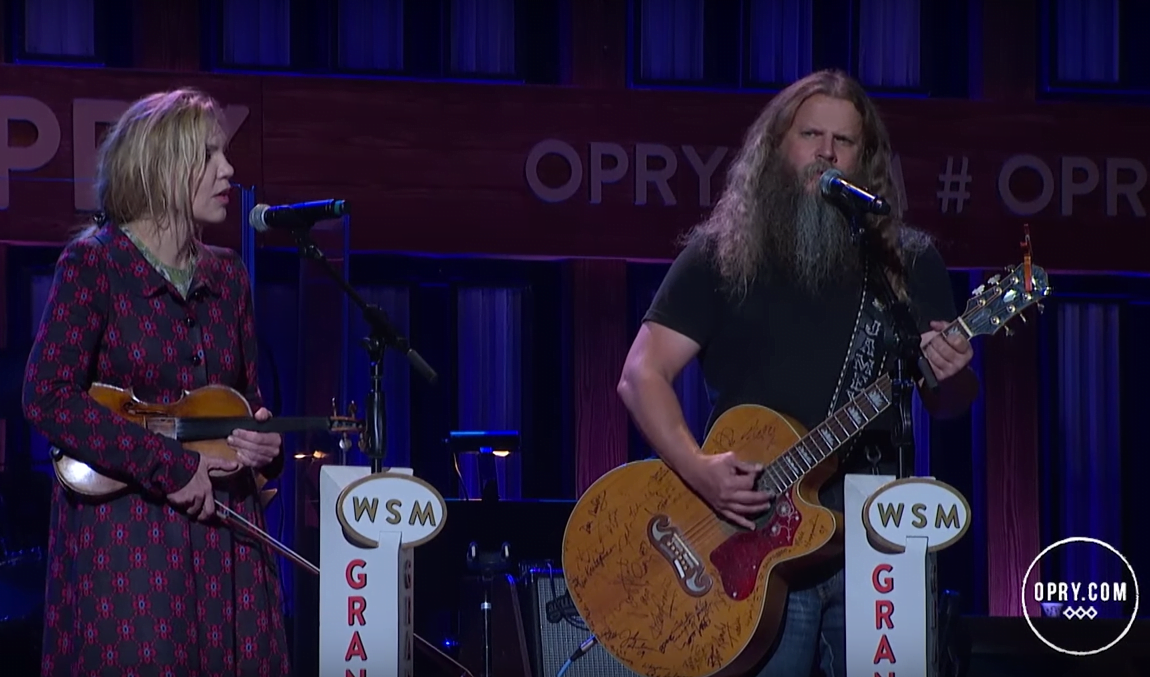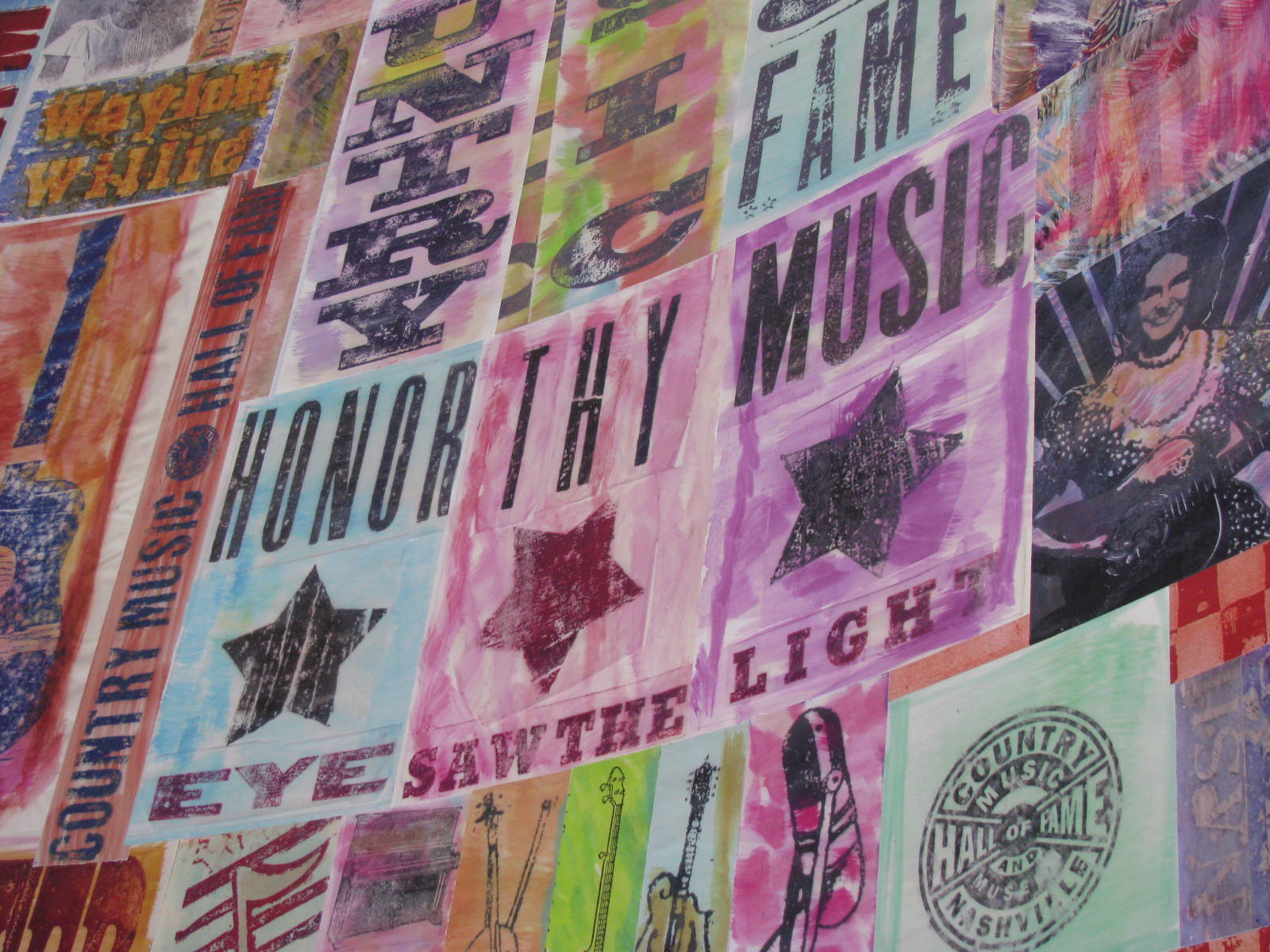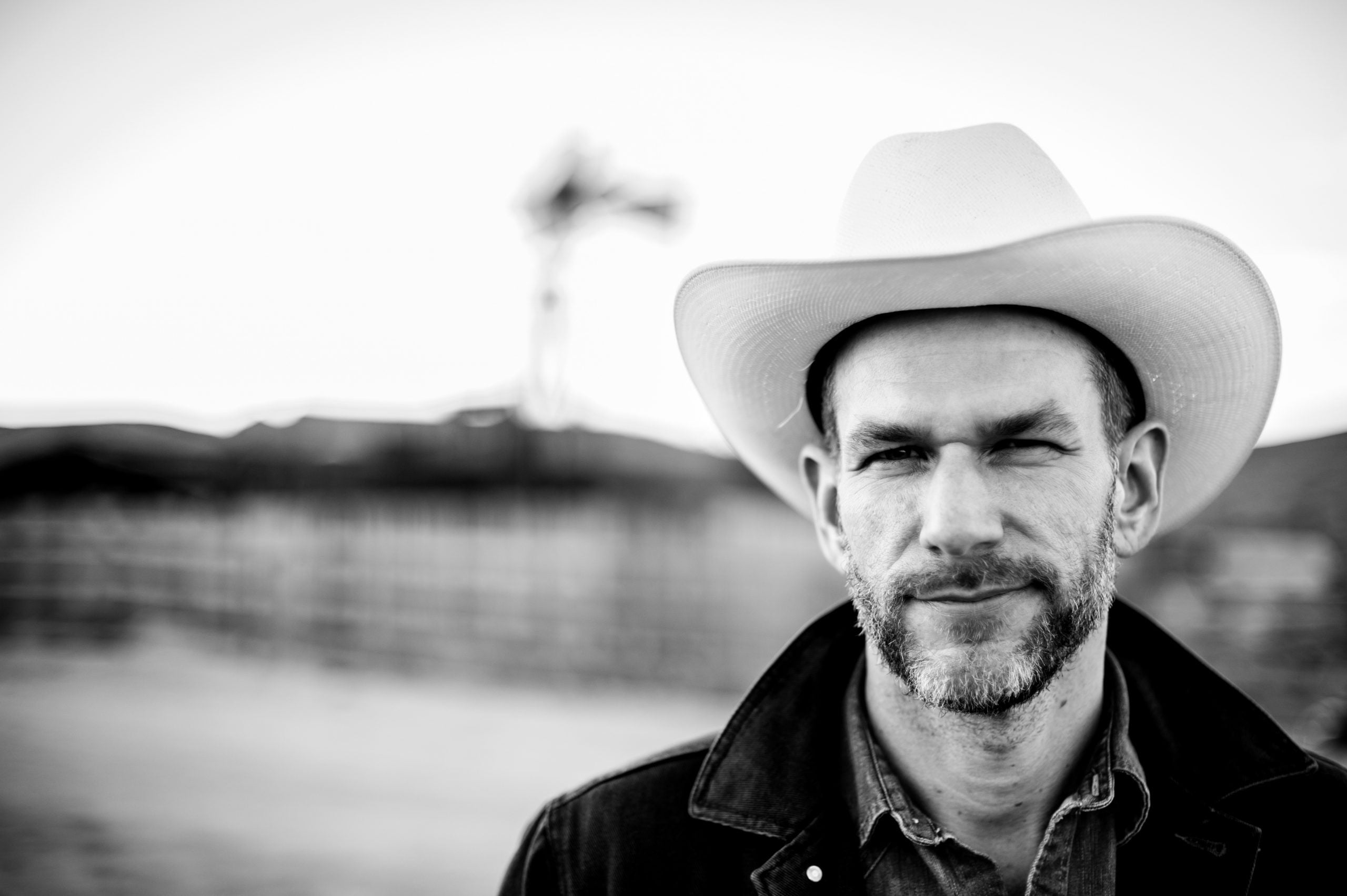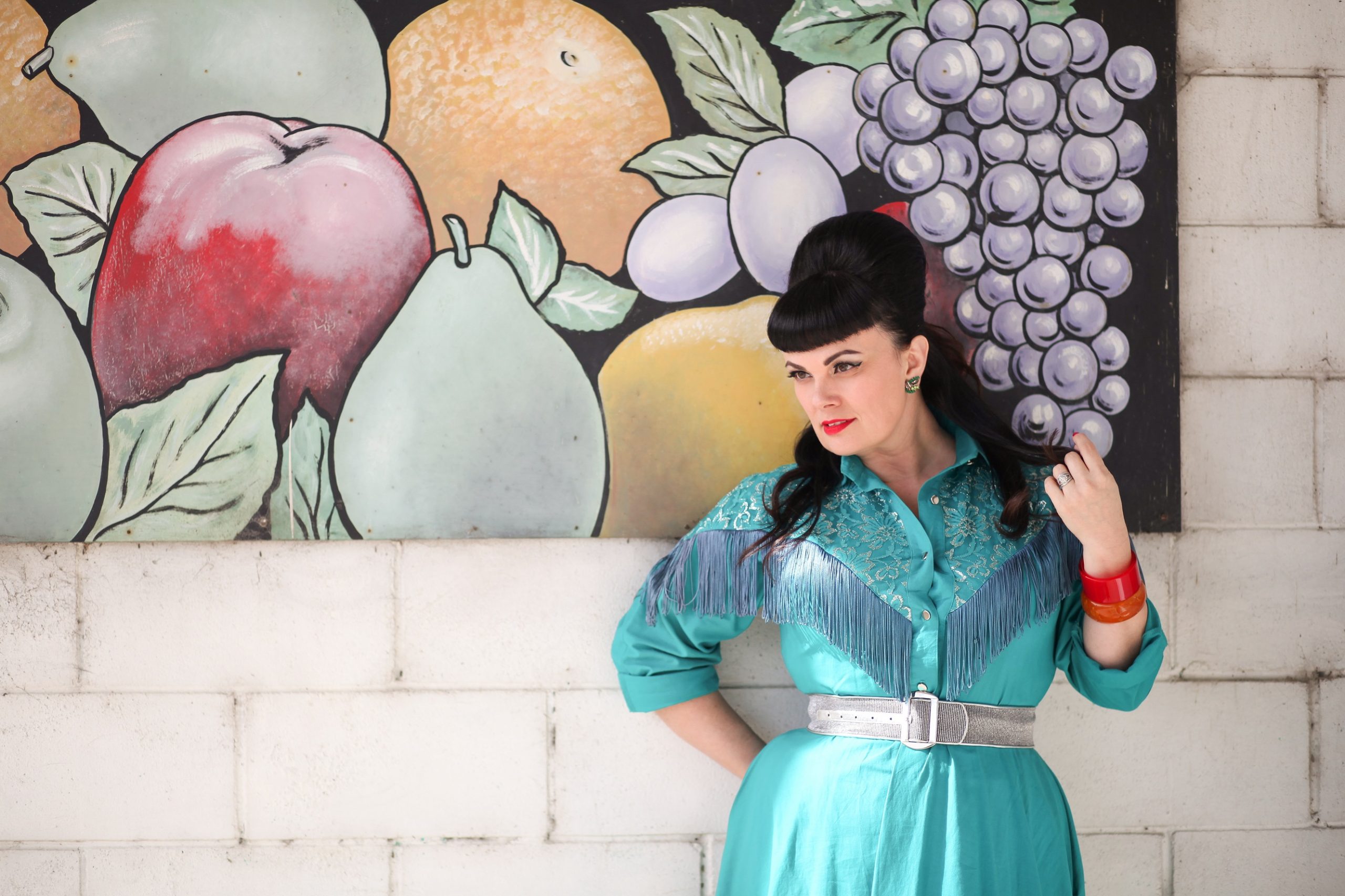Members of Bill Monroe’s Blue Grass Boys — and there were more than 150 of them during his half-century career — often started their own bands in the style of their mentor. This was a huge part of Monroe’s influence: He was both bandleader and charismatic evangelist, training future bandleaders to preach bluegrass in a Monroe-style band of their own. His star students (Jimmy Martin, Lester Flatt, Earl Scruggs, Carter Stanley, Del McCoury, Peter Rowan) started their own influential bluegrass bands — not carbon copies, of course, but homages to the Founding Father’s vision. It was an apprenticeship model.
But one early Blue Grass Boy, Mac Wiseman, left the band to do something unusual: He played solo. He still sang songs from the canon of bluegrass and early country, but he presented them with just his guitar and voice. For dyed-in-the-wool grassers, it was kind of weird. The inside joke went something like, “Did you hear the sad news? Mac Wiseman broke up.”
There was another thing that made him different — and this is just my impression, but I think our interview backs it up. Among the early Monroe disciples, he projected a pretty non-bluegrass relationship to his Southern-ness. Wiseman grew up during the Depression in Virginia coal country, having as much of an authentic claim to rural roots as any of the bombastic blue-collar belters like Jimmy Martin, but he de-emphasized the drawl. Wiseman started his career as a radio broadcaster and always sounded like one. He didn’t want to develop a groovy, bluesy, Monroe-style band or shake the rafters with a piercing tenor. Instead, he found a home in the ’60s folk revival crowd. He told stories. He enunciated. He crooned.
And now, at 91, he has a new album. I Sang the Song (Life of the Voice with a Heart) features 10 songs that tell the story of Wiseman’s long, busy life. Featured guests like John Prine, Shawn Camp, Sierra Hull, and Alison Krauss help pay tribute to his distinctive voice and one-of-a-kind career. Amazingly, Mac Wiseman can still hit the high notes.
I called Mac at his house in Nashville and first got his answering machine. He picked up, interrupting my message, and said, “Sorry I almost missed you! I had the vacuum going!” We talked about his childhood during the Depression, how he learned guitar while recovering from polio, his introduction to John Prine (it involves a threat — and Earl Scruggs), and his deep disappointment with the direction of country music. At 91, he’s gracious, funny, and sharp as a tack — and, maybe most impressively, he still does his own vacuuming.
First of all, I think it’s amazing that you’re 91 years old and still singing. It’s amazing, too, to think of how much social and cultural change you must’ve seen in your lifetime.
Oh, it certainly is. And I’ve been blessed with a decent memory. When I think of all the different phases I’ve gone through, it’s hard to cope with it sometimes.
I know you were born in mining country in Crimera, Virginia, in 1925. I’m sure life in Virginia back then was pretty different.
The first four or five years I was alive, it was peaches and cream. Then the Depression hit and it was the opposite. It was onions and water! I have vivid memories of when I was four, five, six years old. I remember how carefree things were. When the new highways were being constructed all over the place, my dad was making nine dollars a day. He had a Ford Model T car with solid rubber tires on it in 1928. Then, the next year, he couldn’t even afford to buy the tags for it.
I heard that you started learning the guitar while you were recovering from polio, is that right?
Actually, it was while I was recovering from a few corrective surgeries. I had polio when I was six months old, but they wouldn’t do any surgeries until I was approximately the growth I was going to be. So, at about 13 years of age, I went to Charlottesville to the hospital — twice. They operated on my legs, and it made all the difference in the world. That’s when I started learning the guitar, just laying around with a cast on up to my butt!
I guess you couldn’t do much but sit and sing.
That’s exactly right. I had been very active, of course, working the farm for our livelihood, but when I was laid up that summer and fall through the seventh grade, my mother had to take me to pick up the school bus in a little buggy. Then I went on and became valedictorian. How do you like them apples? [Laughs]
That’s impressive! I heard another impressive quote about you. Bill Monroe called you “the best lead singer I ever had.” That’s pretty high praise from a guy who was a tough bandleader.
Well, he did say that, and that was very complimentary. Oh, working for him was very interesting. We toured a lot. He was from Kentucky, of course, and we played all the big theaters around there. We traveled and watched all the movie rolls. Bill and I watched them so much we could recite them riding along in the car! He was a very interesting man to work for. He knew exactly what he wanted to do, and he told you. But I enjoyed working for him and we never had a cross word.

You’ve made over 60 albums, recorded some 800 songs …
Yep, sure have. A lot!
… and most of that was before the Google era, when you could look up all 50 versions of a song with one click. How did you learn new songs, and how did you decide which ones to record?
In my growing up days, we mostly listened to live radio. In the ’20s and ’30s, radio was just coming into its own, you know, and it was mostly live — there were no disc jockeys. My mother was quite interested in music. She would play the organ and read shape notes and things like that. She encouraged me, hoping I would learn something that would get me out of the fields. That’s where I learned a lot of those old songs. She would sit out by the radio — we had the first battery radio in our community — in the wintertime, when it was too cold to work outside, she sat there and quilted and crocheted. She had a composition book laying on top of the radio, and when a live group would come on and sing a song, she’d get a verse or two of it. A few days later, they’d sing it again and she’d get some more. I’ve got 13 composition books in her handwriting where she wrote those songs down for me.
That’s really a treasure.
It is indeed. That’s where I got my background of the old songs. I can remember some of those songs from when I was four or five years old. “Granny’s Old Arm Chair” and “Barbara Allen,” things like that.
That’s interesting. Those old ballads like “Barbara Allen,” they’re story songs. And that’s sort of what the songs on this new record do. They tell your story.
That’s right. It’s my life story in song … 10 songs.
That’s one thing I really like about your singing, that sets you apart from some bluegrass and country singers — it may be a small thing, but it strikes me as important to you — that you sing words really clearly. It’s always easy to hear your lyrics.
Lyrics are very important to me. That’s been an important identity for me, as well. I went to college majoring in radio and did a lot of air work — news, pop records shows, working the control room — and that’s where a lot of my diction comes from.
Well, it shows in your songs. You know how to tell a story.
Well, I try to do that. You know, I actually lived those stories. They don’t change with generations. Even with a new batch of people, the old songs remain the same, and the themes remain the same. Disasters and love and train wrecks, things like that. They’re a slice of life, so to speak.
I’m only 26. My generation grew up with the Internet, many of us living in suburbs, getting our food from an air conditioned grocery store. Do you think all these songs about trains and cabin homes and farming can still resonate emotionally with people?
Well, like I said, they’re a slice of life. Maybe there aren’t many train wrecks that you know about anymore, but it’s also an historical look, these songs. I’ve played a lot of the colleges, the listening rooms, just me and a guitar. They’ve wanted to hear these old songs that paint a picture of a life these kids have never been exposed to. That’s the reason for the longevity of them, I think.
One amazing thing to me is that you’ve played through so many eras of history and eras of music. You were right there through the beginning of bluegrass in the ’40s, but you also played the Newport Folk Festival in the ’60s — what was the Newport folk scene like?
I never knew Bob Dylan, but I did a number of festivals with Joan Baez. After these festivals in the evenings, that was fun, we’d gather up in hotel rooms and sing old songs.
So you’ve been making music for a long time, and it seems like learning from every different generation — bluegrass in the ’40s, folk in the ’60s, pop along the way. Do you feel like you had to reinvent yourself for different eras?
No, I just kept on doing my thing, you know. I could’ve been a bigger star for a short period of time by following the trends, but I decided to just be myself and hoped people liked that. Fortunately, I’ve had a pretty good haul all these years. But I never tried to copy anybody else in the business or change my style to seek what they wanted.

You got to work with a lot of great musicians on this new record.
That’s right. Alison Krauss came by my house and we recorded “’Tis Sweet to Be Remembered” for the new CD. And I sang it the same key as I sang it in 1951 when I recorded it first for Dot Records! Even the new songs we wrote for this record, those are true stories in those songs: standing and warming my feet where the cows had been laying … wheat crop going bad because it rained on it … Every one of those are actual stories about my life. So, yeah, sorry to repeat myself, but it’s a slice of life.
John Prine is featured on this record, and you made a record with him in 2007. How did you get to know each other?
Well, I’d always been aware of his work. Then, one time, a guy who owned a studio came to Earl Scruggs’ birthday party — he’s a real boisterous fellow and he told me, “John says, if you don’t come see him Thursday, he’s going to kick your butt!” I admired him and all, so I went down to his office. What he had in mind was pitching me songs for me to do on my own. We got to talking and found out we knew a lot of the same things, so that’s how that record came about. That was one of the great experiences of my life, singing with John and swapping verses, you know. John still comes to my house to see me quite frequently.
You’ve been around for so much of country music history. I’m curious if you listen to any new music and what you think about it.
Today’s music? Well, I’m very disappointed in it, because so many of the younger artists don’t know the background. That’s the reason I go to colleges: They sit on the floor all hush-hush and listen to the old stories. Sometimes I have to do the same old song two or three times in a concert. So it’s an educational thing to the younger people. For so many industry people today, it’s all a mechanical thing. The record companies have publishing companies, so they can sign up an artist and put him in a room for four or five hours a day to write. Pretty often, one song out of the whole album is the one that hits, but the rest of them are junk. I still listen to it just to see what changes, but I don’t enjoy it like I did. There’s a few acts that I enjoy, but a lot of the younger ones, I don’t know who the hell they are!
So you feel like a lot of the younger artists don’t have an understanding of the history of country music?
No, they really don’t. They don’t have the knowledge of it. Actually, the record companies don’t have a knowledge of it. They’re business people out of New York and Chicago and L.A., and they come to Nashville to make business out of it. A lot of them have no idea of the history. I’ll give you a quick example: I was on the board of directors for the CMA where we nominated people for the Hall of Fame. And there was a young man on there from New York representing Decca Records here. We were at a board meeting, and folks like Owen Bradley were there, people of that vintage. [Note: Owen Bradley was an influential producer who helped modernize the Nashville sound in the ’50s and ’60s.] Owen nominated Brenda Lee. This young man stood up and quite innocently said, “Who is she and what did she do?” I wrote a letter of resignation right then and there. He was an honest fellow, and it was okay that he didn’t know, but what was he doing on that board?
Didn’t that make you want to stay on the board and change it and teach them a little more about the history?
No, you know, I was one of the founders. I worked at every facet of it. I’m the only living member of the original board of directors. I’ve been in it professionally since ’44, you know. Radio, bands, and recording. I was A&R director of the country department for Dot Records out of Hollywood for six years. Done a lot of things.
Well, you’re still singing at 91 — and you still sound like you. I’m sure a lot of people are wondering what’s your secret to staying productive into your 90s and still being able to sing so well.
I don’t know, but it is a blessing. I think it’s sticking to your guns and the good Lord’s blessing — that’s it.
Mr. Wiseman, I really appreciate you taking the time to speak with me this afternoon.
Well, it was my pleasure. I’m so pleased you’re writing about this music. But at the same time, you know, it keeps me alive.
